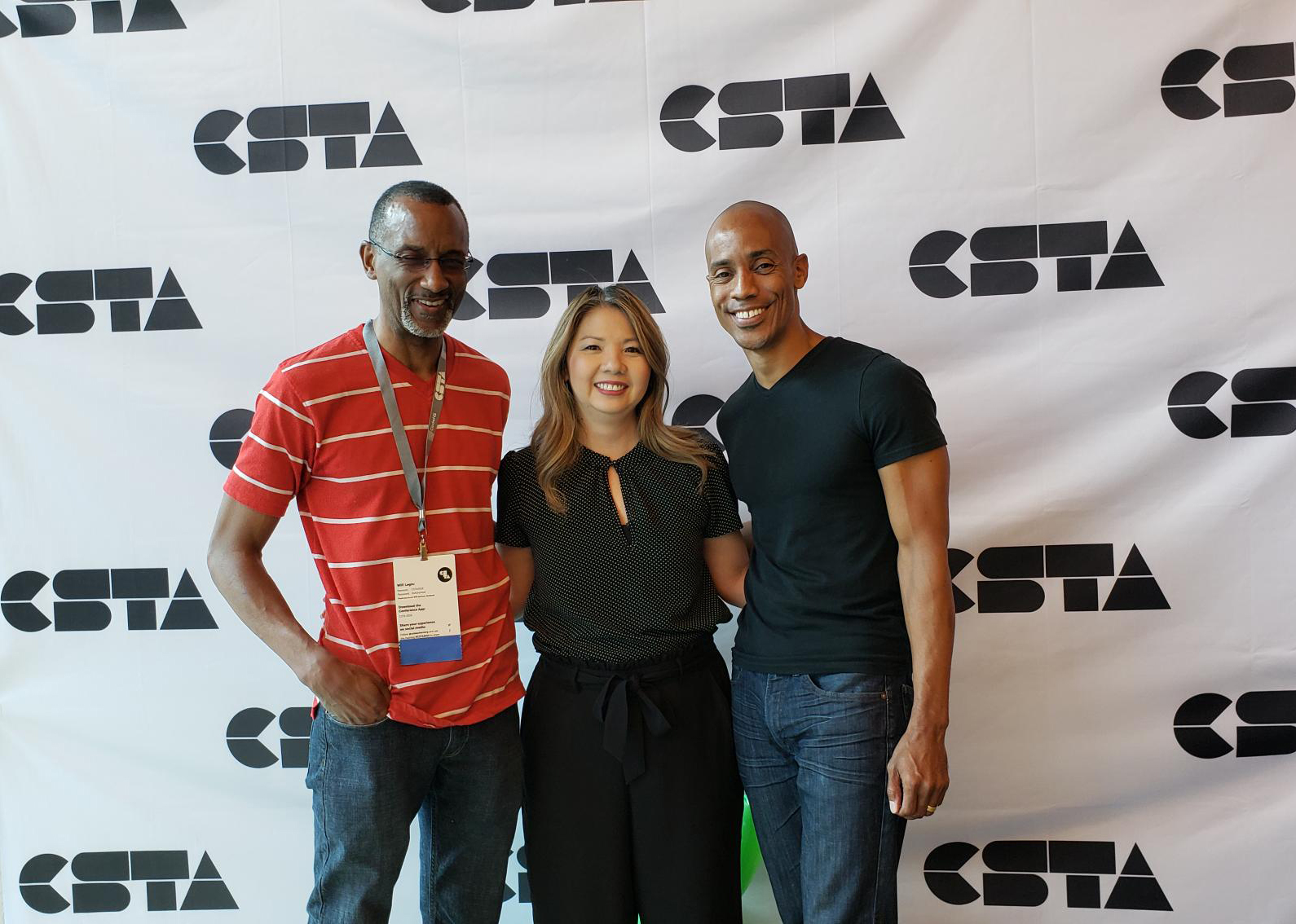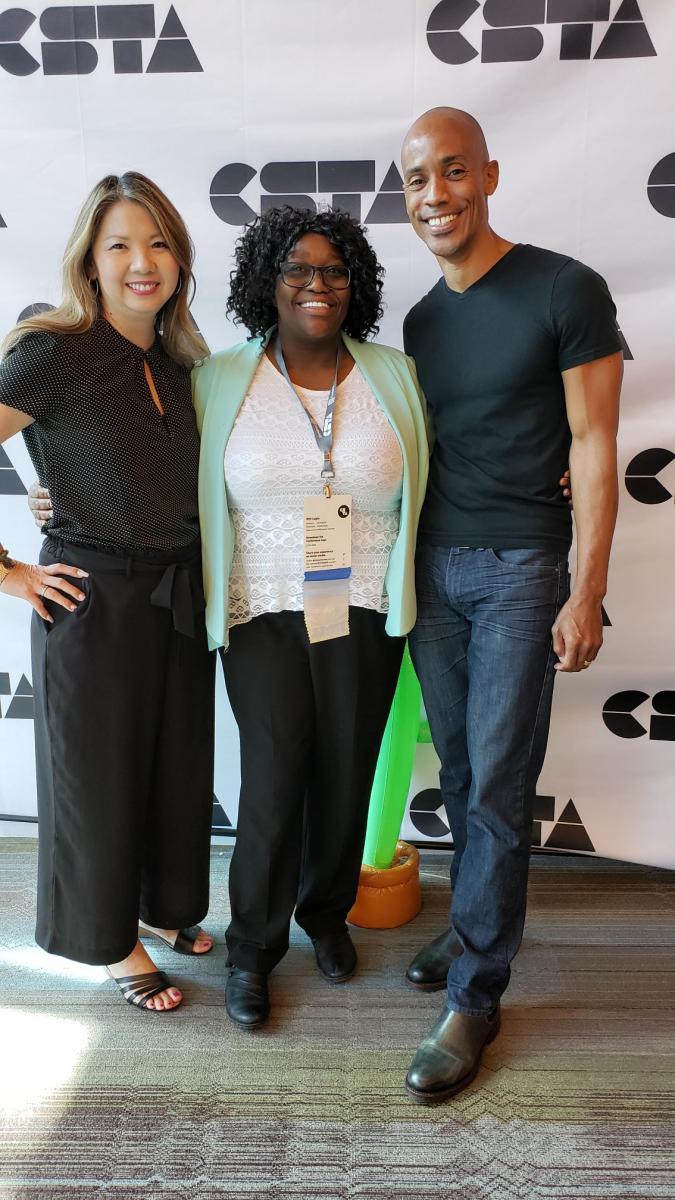
Equity for Teachers by Teachers
I’ve attended the Computer Science Teachers Association (CSTA) Conference almost every year for the last ten years and was so pleased to see the largest attendance to date at this year’s conference in Phoenix, AZ. Even the 112 degree heat couldn’t keep over 1,000 computer science (CS) teachers from attending workshops and sessions, sharing teaching and learning experiences and promoting successful efforts in expanding CS opportunities all across the country.
It has taken a while for the community to grow - the community that attends the CSTA conference that is - but the attendance at this year’s conference certainly shows that there is an increase in the number of K-12 teachers who are invested in learning to improve on CS education.
I thoroughly enjoy meeting new teachers as much as I enjoy meeting up with ones I’ve worked with over the years. I was thrilled to meet teachers from Wyoming, a state where a decade ago only had two students take the AP CS A Exam. In 2018, 11 students took the AP CS A Exam, and 27 took the AP CS Principles Exam. It was great meeting them and hearing about their efforts to promote CS and how they were trying to connect with seven other teachers from Wyoming who were also at the conference. A sign that Wyoming is taking great steps to providing greater access to CS.
As I reflected on conversations with teachers and as I sat in plenaries and keynotes observing other attendees, I thought about how the community of CS teachers attending this conference is growing. I also couldn’t help but to wonder how much longer will it take for it to become more diverse and to include more teachers of color who are teaching CS.

To be clear, what I hope to see in the near future for the CSTA and its conferences are fresh perspectives on equity, diversity and inclusion that can help expand discussions on broadening participation in CS. For this to happen, we must have more teachers of color not just in these conversations but leading them. It requires a dedicated and concerted commitment to diversify the CSTA community & leadership, creating meaningful recruitment efforts for CS teachers of all races and ethnicities to become part of the CSTA community, and setting a cutting edge agenda for the CSTA to fully support, inspire & empower all teachers.
During Dr. Joanna Goode’s keynote “Equity, Inclusion and Teaching CS to All” the CSTA Equity Fellowship was announced. A wonderful initiative to recruit teachers inclined to build on their leadership skills and drill down on efforts to achieve equity in CS education. I am extremely proud to be an advisor to the initiative and I look forward to the success of this fellowship.
I’ve been a part of several other projects over the last decade to broaden participation in CS, and there are at least two factors that have greatly impacted my work that have nothing to do with CS:
- I work to heighten my awareness of my own biases so that I am continually a force to break barriers, or at the very least, to push the boundaries of tolerance as much as I am able to.
- I work on listening, really listening to other people’s experiences. Teachers’ of color must be able to share their stories, especially in matters of inclusion and equity.
Together with the CSTA, we must all work to diversify the CS teacher community not only so that students of color can envision the possibilities of CS with teachers they can relate to but to also give power back to teachers to become the leaders they need to be to make CS a pillar in American education for all students. We can’t achieve equity for students without teachers. We need equity for teachers by teachers. Certainly, seeing a change in the attendance at future CSTA conferences could be a sign that the existing community is taking great measures to make that happens and I am grateful to be part of those efforts.



